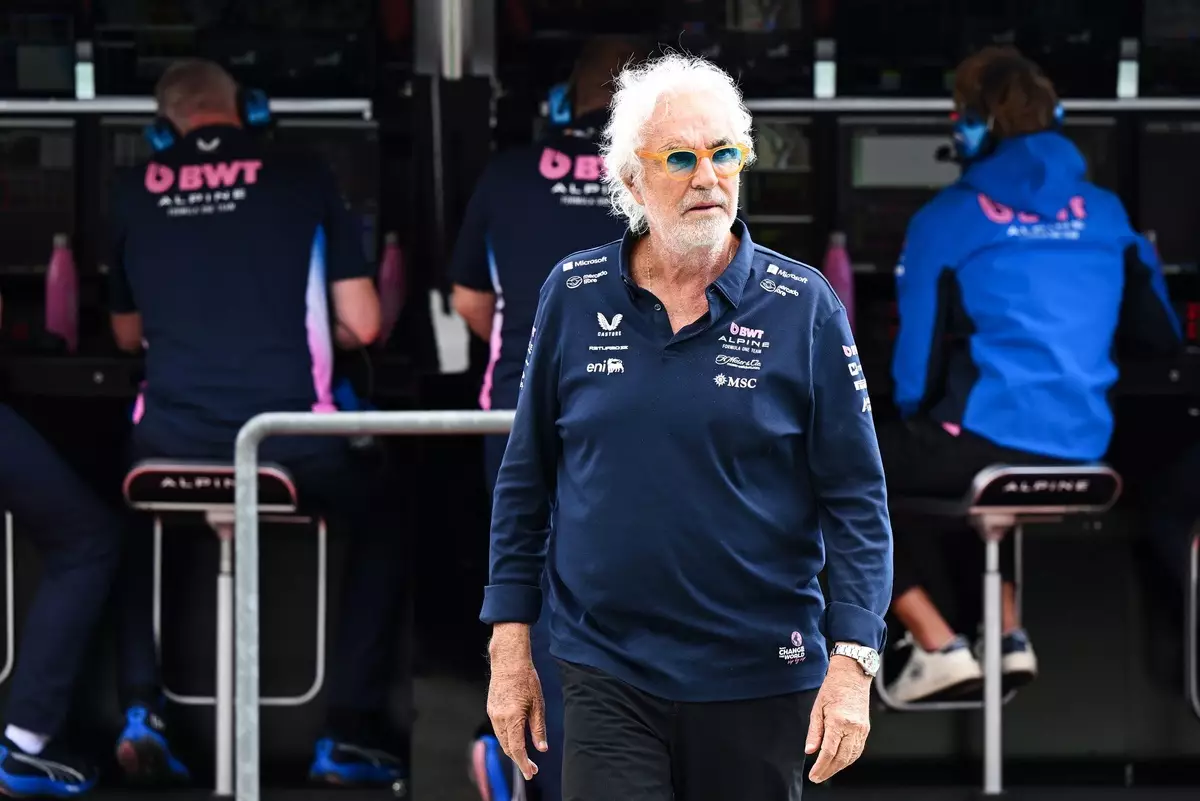In the high-octane world of Formula 1, few figures evoke as many mixed reactions as Flavio Briatore. The Italian name is synonymous with both triumph and controversy, steeped in a complex history that oscillates between managerial brilliance and scandal. Now, as he reestablishes his influence at Alpine F1, Briatore has made it clear that the time for excuses is over. With the 2026 season looming, he is tasked with revitalizing a team that has spent too long languishing in the mid-field of the pack. His assertive stance reaffirms a belief that has defined his career: winning is not just an aspiration but an obligation.
Briatore’s presence in Formula 1 has always been a double-edged sword. While critics point to notorious incidents—most notably the 2009 ‘Crashgate’ scandal that led to his lifetime ban, lifted only years later—supporters highlight his undeniable success in leading Renault (then under the banner of Benetton) to three Constructors’ Championships. There’s a paradox in his charisma; as much as his polarizing nature raises eyebrows, it also galvanizes teams to achieve unforeseen heights.
Revitalizing Alpine’s Ambitions
Post-Oliver Oakes, Briatore’s hands-on involvement has revitalized Alpine’s ambitions. As the team struggles with performance, evidenced by a meager seven points earned early in the 2025 season, his transformative vision involves immediate changes and bold decisions. The replacement of driver Jack Doohan with Franco Colapinto, intended to inject fresh energy into the lineup, reflects Briatore’s aggressive strategy to align outcomes with Alpine’s lofty aspirations.
With the 2026 regulations promising significant shifts in the competitive landscape, Briatore’s assertion that “there will be no excuses” resonates deeply. He emphasizes the need for competitiveness as a non-negotiable condition, not just for Alpine but as a tribute to Renault, the team’s parent company. This creates an atmosphere where every member of the organization must embrace accountability—a culture that prioritizes results over rhetoric.
A Strategic Shift to Mercedes Power
The decision to transition from Renault power to Mercedes for the upcoming season is a monumental one, revealing Briatore’s strategic acumen. Acknowledging past disadvantages, he views this as a pathway to competitiveness that previous alignments couldn’t provide. His candid acknowledgment—“The easiest way to win is to sign Max Verstappen, but we can’t”—shows a realism that is refreshing in a sport often marred by unrealistic projections.
Briatore’s insistence on operational excellence cannot be overstated. He understands that having the right resources is imperative in an era where technology and engineering prowess can make or break outcomes. By aligning with Mercedes, he hopes Alpine can harness the pedigree and precision that have defined success in modern Formula 1. The implications of this shift extend beyond mere engine performance; it’s about cultivating an identity aligned with winning.
Consolidating Leadership and Vision
Briatore’s renewed engagement comes at a time when Alpine requires cohesive leadership. With Oakes’ departure, Briatore is not merely stepping into a managerial void; he is actively shaping a narrative that positions Alpine as a formidable contender. His commitment to integrating a strong team across technical, commercial, and management sectors underscores a belief in holistic success, where every aspect of the organization contributes to a unified vision.
Moreover, his insistence that the team principal role is merely a detail underscores a deeper philosophy—that true leadership transcends titles. Briatore communicates openly and decisively, demonstrating that issues must be addressed head-on rather than swept under the rug. This proactive approach to leadership fosters a culture of transparency, which is crucial for building trust and reliability within the team.
The Road Ahead: Challenges and Expectations
Flavio Briatore’s foray back into the intricate dance of Formula 1 management transports us into a realm filled with lofty expectations and undeniable pressure. With the winds of change approaching in 2026, Alpine stands at a crossroads where resurgence is not just desirable; it is essential. In a sport governed by both speed and strategy, the search for victory is relentless.
Briatore’s insatiable appetite for success is a crucial ingredient as Alpine seeks to etch its name back into the sacred annals of Formula 1. It may not be easy, but under Briatore’s watchful eye, the stakes couldn’t be higher. With aspirations of not just race wins but championship titles, the journey ahead is poised to be a titanic struggle, splendidly chaotic yet compellingly strategized. The question remains: will Alpine rise to meet its defining moment, or will the ambitions of one man clash with the unpredictability of a sport that thrives on uncertainty?

